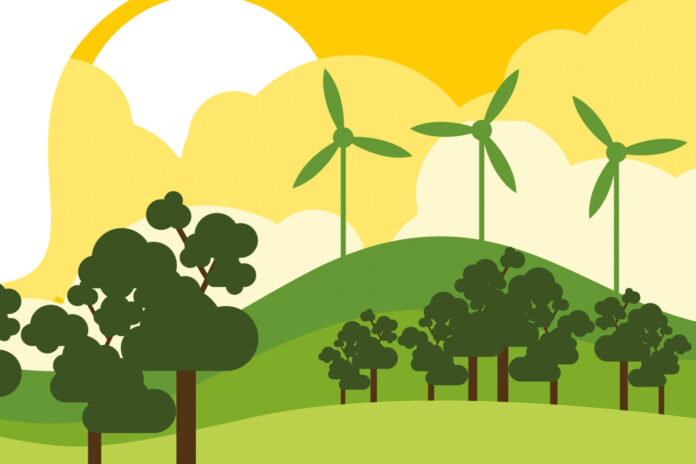
By Alissa MacMillan
Q: I have read here and there that the climate crisis is linked to inequality in society, but am not sure I understand exactly how. Could you explain this?
A: Your question is a super-important one, as many of us tend to think of the changing climate as a problem solved by focusing only on the climate, instead of one very much interlinked with humanitarian concerns.
I spoke with Clodagh Daly, manager of the Centre for Environmental Justice at Community Law & Mediation (CLM), a nearly 50-year-old Limerick and Dublin-based organisation. As she explains, there is an inseparable relationship between the environment and social justice: “environmental justice, from our perspective, is the protection of people and planet.”
CLM is grounded in the community law centre model, offering free legal advice, mediation, education, children’s law, and other human rights assistance to citizens. Their Environmental Justice Centre started in 2021, as “some issues coming into free legal advice clinics were environmental in nature, but we hadn’t been looking at it from that lens,” Daly explains. For example, homes were repeatedly flooded but impossible to insure, health was impacted by local air quality, and all of this was influenced by where people could afford to live. As environmental issues continually emerged, they realised “it was important for an organisation with a human rights and social justice background to come into the environmental space.”
We often hear of “the impacts between the so-called global north and global south,” says Daly, like the levels of flooding and food and water shortages that might occur in the global south in the coming years. “That is a really important perspective and not to detract from that,” she notes, but CLM also looks to the domestic and local level. Emissions gaps are pronounced within countries because of inequality. “Ireland is uneven economically, and those who have contributed the least to climate change will be effected most,” and can voice their concerns the least.
This means, when it comes to both environmental and social justice, there is much work to be done, even in Ireland.
“We are under a huge amount of pressure to reduce emissions very rapidly and there needs to be a huge amount of policy and legislative change,” she says. “It’s important that it’s as human rights-informed and equality-informed as possible.”
LEGAL CHALLENGES
Daly and her team at CLM have a few ongoing cases, including a challenge to Ireland’s Climate Action Plan 2023, where they are acting solicitors for Friends of the Irish Environment. With Ireland’s legally binding carbon budget running well over, the Climate Action Plan 2023 lacks enough detail as to how this budget will be met. Their own challenge is based on a 2020 win in the Supreme Court, where a national mitigation plan for climate policy was struck down, based on its lack of specificity, including how emissions ought to be reduced and issues around transparency. “That judgement was strong, a huge victory, and unfortunately, the Climate Action Plan 2023 didn’t provide that kind of detail.”
The case will be heard in the High Court in January 2025, and “the hope is that the court will ask the government to provide new detail about how the carbon budget will be met.”
CLM has taken a second challenge to Climate Action Plan 2024, this time as the client, joined by three plaintiffs: a grandfather, a youth climate activist, and a toddler, represented by his mother. In this case, they hope to show that “using up too much of the carbon budget now is failing future generations,” and is a breach of human rights.
Because CLM is very small, “we would never take a case unless we were confident,” she adds, and they were “bolstered” by the recent victory of the senior Swiss women before the European Court of Human Rights, who argued that the climate-related heat waves disproportionately affect older women. Switzerland was found to be breaching their human rights; “it was the first time the European Court of Human Rights has ruled positively on climate change, so it sets a strong precedent for others to follow,” says Daly.
ACTIVISM – “NO RIGHT OR WRONG”
CLM gets assistance from, for example, the Climate Litigation Network, which provides support for individual cases and connects groups in different countries, sharing information, resources and strategies. They also see litigation as an important option for citizens when the political system isn’t moving fast enough.
While this might all sound very removed from our own day-to-day activities, everything matters, from the individual to the legal and political.
“I would have originally come into environmentalism from very much the responsibility of the individual,” says Daly. “I then started to think about how much power individuals have.” While she recognises that “we are only operating within systems and structures that are beyond our individual control,” she also finds it “increasingly difficult to separate the collective and systemic from the individual,” as, for example, with voting, an individual act, but “one of the more important things you can do in climate activism.”
“It does need to be from the state down, top led, but it is also needs social and cultural change,” Daly adds. We need open conversations and entry points everywhere. “Activism can take lots of different forms, there is no right or wrong.”
Time is also of the essence. “The longer we delay adequate action on climate, the more difficult it’s likely to become,” Daly adds. “If we avoid reducing emissions significantly in the short term, it’s more likely that the impacts of climate change will become increasingly visible, and the policy response could become more abrupt and disorderly.”
This also means that getting involved in climate activism might mean getting involved in human rights causes. Daly recommends checking out local climate groups which can feel therapeutic and empowering.
“Once you get involved you start to see that we can effect change as citizens,” Daly says. “Democracy isn’t about voting once every few years, we need a lot more people to get more regularly involved. Becoming politically active on any issue connected to inequality is also inherently good for the climate.”
As Daly notes, “We don’t need to separate climate from all of our other issues.”











